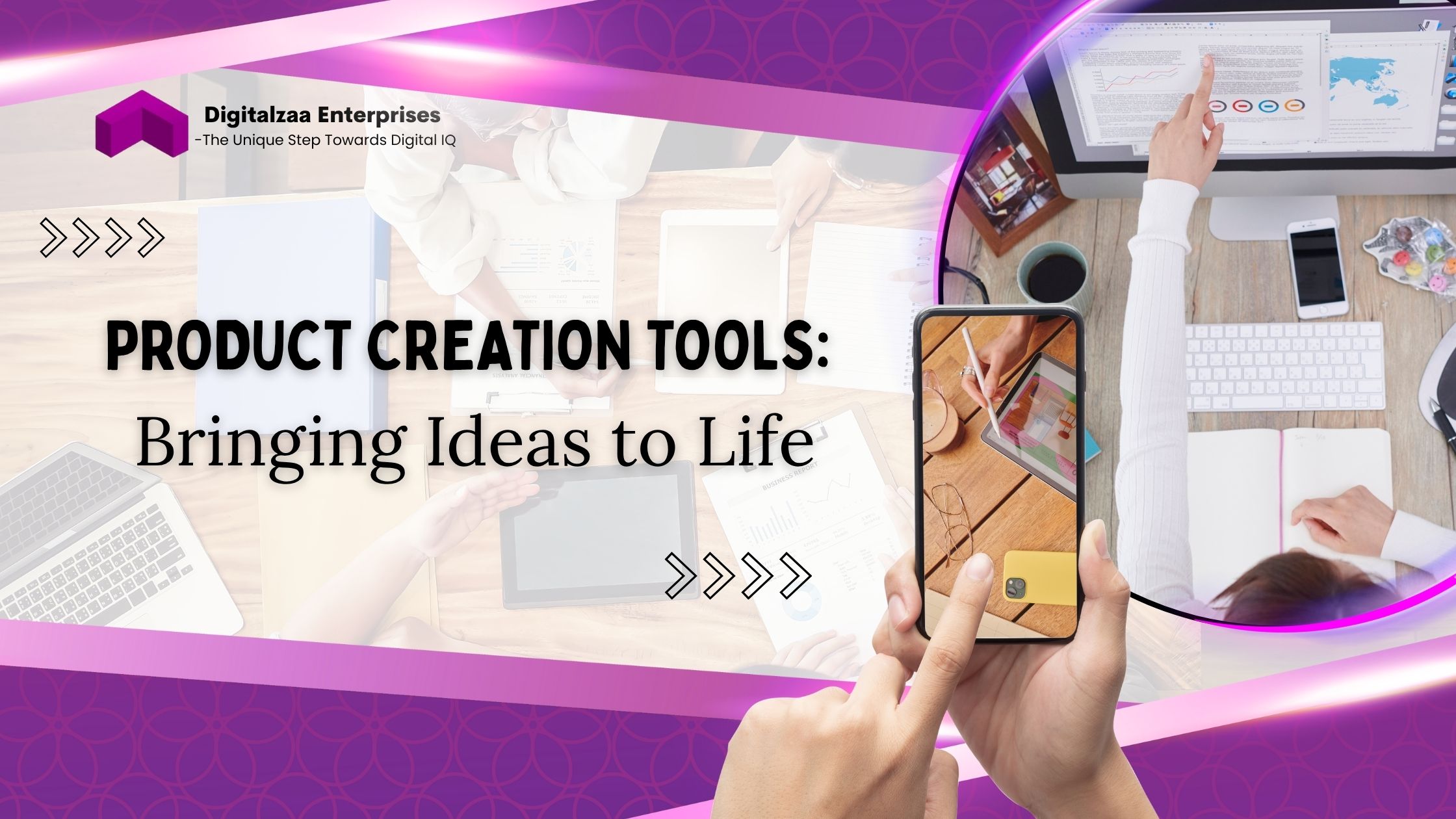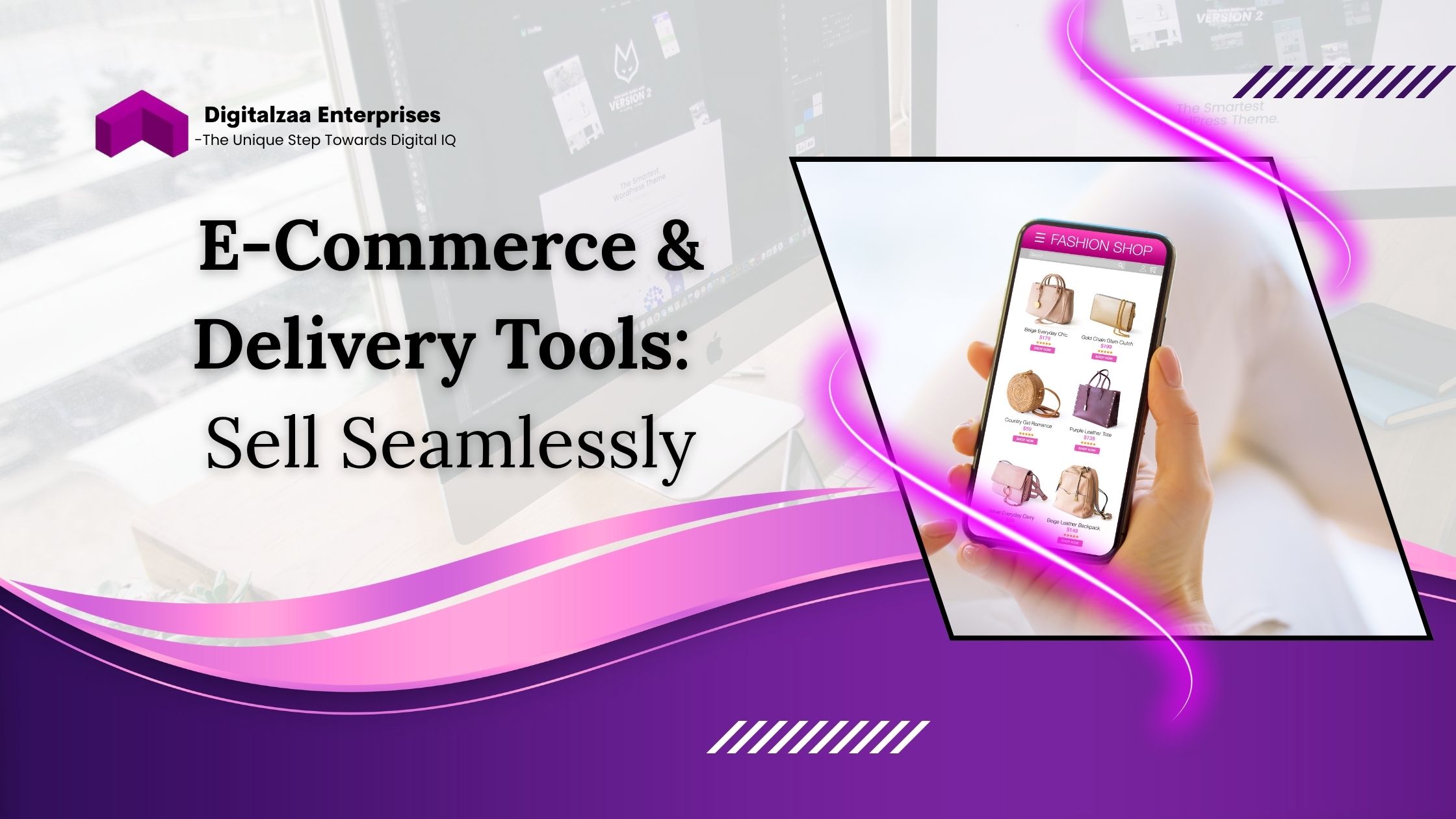Must-Have Tools for Digital Product Creators

In the rapidly growing world of online business, digital products have opened up a world of opportunities for creators, entrepreneurs, and small business owners. Whether you're designing templates, building courses, selling eBooks, or launching a membership site, having the right tools can make the difference between a time-consuming process and a smooth, scalable system.
Suppose you’re serious about creating and selling digital products. In that case, you need a strategic toolkit that helps you streamline workflows, boost productivity, and deliver a top-notch experience for your customers.
In this blog, we’ll walk through the must-have tools for digital product creators in 2025 — covering everything from product creation and automation to marketing, selling, and scaling.
🚀 1. Design Tools: Crafting Beautiful Digital Products
A great digital product starts with great design. Whether it’s an eBook, course slides, templates, or digital planners, design plays a key role in making your product stand out.
Here are some essential design tools for creators:
✅ Canva
- Why it’s a must-have: Canva is perfect for beginners and pros alike. It offers pre-made templates for eBooks, social media posts, workbooks, and more.
- Best for: Quick, professional-looking designs without needing advanced design skills.
- Bonus: Canva Pro unlocks premium templates, brand kits, and background remover tools — a big time-saver for creators.
✅ Adobe Creative Cloud (Photoshop, Illustrator, InDesign)
- Why it’s a must-have: For those who want advanced control over their designs, Adobe’s suite remains the industry standard.
- Best for: Professional designers creating original illustrations, custom layouts, and branded assets.
- Bonus: InDesign is particularly great for designing eBooks and digital magazines.
✅ Figma
- Why it’s a must-have: Figma is ideal for collaborative design. It allows multiple team members or clients to work on a design in real-time.
- Best for: UI/UX for digital apps, complex templates, and teams working remotely.
🧠 2. Product Creation Tools: Bringing Ideas to Life

Once you’ve designed your assets, you need tools to build the actual product — whether it's an online course, downloadable file, or a membership portal.
✅ Notion or Google Docs
- Why it’s a must-have: These tools are excellent for planning, outlining, and drafting content. Notion, in particular, is great for organizing large projects like courses.
- Best for: Brainstorming, content structure, and easy collaboration.
✅ Teachable / Thinkific / Podia
- Why it’s a must-have: These platforms make it easy to build, host, and sell online courses and memberships without coding.
- Best for: Coaches, educators, and creators who want a branded learning experience for their students.
- Bonus: They handle video hosting, payment processing, and student management.
✅ Gumroad / Payhip
- Why it’s a must-have: For creators selling PDFs, templates, music, or digital downloads, these platforms simplify the checkout and delivery process.
- Best for: Solo entrepreneurs looking for low-cost, easy-to-use eCommerce tools.
⚙️ 3. Automation Tools: Save Time & Scale Faster
Automation is the secret weapon of successful digital product businesses. By automating repetitive tasks, you can focus more on creating and marketing — not on admin.
✅ Zapier
- Why it’s a must-have: Zapier connects your favorite apps and automates workflows with no coding needed. For example, when someone buys a product, you can automatically send them a welcome email, add them to your CRM, and update your database.
- Best for: Integrating multiple tools and setting up seamless backend systems.
✅ ConvertKit / MailerLite
- Why it’s a must-have: Email marketing is the backbone of digital product sales. These platforms help you automate email sequences, nurture your audience, and launch products effectively.
- Best for: Building email lists, delivering lead magnets, and running evergreen funnels.
✅ Trello / Asana
- Why it’s a must-have: Automation isn’t just about tech — it’s also about managing your workflow efficiently. Trello and Asana are fantastic project management tools for keeping your content and launches on track.
💳 4. E-Commerce & Delivery Tools: Sell Seamlessly

A smooth checkout and delivery experience can make or break your digital product sales. You need tools that ensure secure payments, automated delivery, and a professional storefront.
✅ Shopify
- Why it’s a must-have: Shopify offers a fully customizable storefront with powerful e-commerce features. Ideal for scaling your digital product business.
- Best for: Creators who want to build a long-term brand presence.
✅ Etsy
- Why it’s a must-have: If your digital products are creative (like templates, art prints, or planners), Etsy is a built-in marketplace with millions of buyers.
- Best for: Beginners who want to tap into an existing audience.
✅ Lemon Squeezy / ThriveCart
- Why it’s a must-have: These newer platforms offer clean checkouts, affiliate management, and digital product delivery, making it easy to maximize conversions.
- Best for: Solopreneurs and advanced creators who want flexibility without coding.
📈 5. Marketing & Analytics Tools: Promote Like a Pro
Creating a product is just the beginning — marketing it effectively is where real growth happens. These tools help you drive traffic, analyze performance, and scale intelligently.
- Why it’s a must-have: Pinterest is a powerhouse for driving organic traffic to digital products. By creating pins linked to your shop, you can grow steadily over time.
- Best for: Bloggers, creators, and sellers of visually appealing products.
✅ Google Analytics
- Why it’s a must-have: You can’t grow what you can’t measure. Google Analytics tracks where your traffic comes from, what converts best, and where to improve.
- Best for: Making data-driven marketing decisions.
✅ Meta Business Suite / Buffer / Tailwind
- Why it’s a must-have: Consistent social media posting is key for visibility. Scheduling tools like Tailwind (especially for Pinterest) can save hours every week.
- Best for: Creators who use multiple platforms and want to stay consistent.
📝 6. Bonus Tools: Enhancing Your Digital Product Ecosystem
Here are a few more tools that can elevate your digital product game:
- Typeform / Tally – For gathering customer feedback or pre-launch interest.
- Loom – For recording screen tutorials or personalized messages for your buyers.
- ChatGPT / Jasper – For writing product descriptions, emails, and content faster.
- Stripe / PayPal – Trusted payment processors that integrate with almost every platform.
Conclusion
As a digital product creator, the tools you choose can determine your efficiency, quality, and scalability. By using the right mix of design, creation, automation, e-commerce, and marketing tools, you set yourself up for long-term success.
These tools not only help you create better products but also save time, automate tedious tasks, and increase your revenue potential.
Remember — you don’t have to master every tool at once. Start with a few that fit your current stage, and gradually build your toolkit as your business grows.
If you’re ready to elevate your digital product creation game, check out this Pinterest Pin for a visual breakdown of the essential tools you need 👉 Must-Have Tools for Digital Product Creators.


